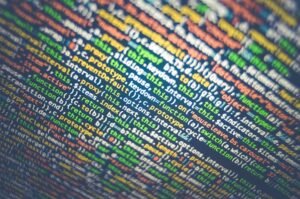Artificial Intelligence Can Revolutionize Education
Artificial intelligence (AI) has become increasingly prevalent in various industries, and its potential to transform education is immense. By harnessing the power of AI, educators can personalize learning, make better data-driven decisions, and enhance student outcomes. This article explores the different ways AI can revolutionize education.
Key Takeaways
- Artificial intelligence has the potential to revolutionize education.
- AI can personalize learning, improve data-driven decision-making, and enhance student outcomes.
- Implementing AI in education requires careful consideration and investment.
Personalized Learning
One of the most significant advantages of AI in education is its ability to personalize learning experiences for students. AI-powered tools can assess individual student needs and create customized learning paths. *This individualized approach caters to students’ unique learning styles and offers personalized feedback, increasing student engagement and comprehension.*
Improved Data-Driven Decision Making
AI can collect vast amounts of data about students’ learning patterns, behaviors, and achievements, providing valuable insights for educators. By analyzing this data, teachers can make more informed decisions about instructional strategies, identify areas of improvement, and tailor interventions to address specific student needs. *This data-driven approach allows educators to optimize their teaching methods for better outcomes.*
Enhanced Student Outcomes
With AI, educators can access a range of tools and resources that can enhance student outcomes. Intelligent tutoring systems can provide personalized feedback and adaptive instruction, helping students master difficult concepts. AI-powered virtual reality and augmented reality applications can create immersive learning experiences, making abstract concepts more tangible. *These innovative technologies have the potential to significantly improve student engagement and academic performance.*
AI Implementation and Challenges
Implementing AI in education requires careful planning, investment, and consideration of ethical considerations. It is essential to ensure that AI technologies are accessible to all students, without exacerbating existing inequalities. Educators and policymakers must also address concerns around data privacy and security. *Striking the right balance between technology and human interaction is crucial in creating effective AI-powered education ecosystems.*
| AI Applications in Education | Examples |
|---|---|
| Personalized Learning | Adaptive learning platforms, intelligent tutoring systems |
| Data Analysis and Insights | Learning analytics, predictive modeling |
| Virtual Reality and Augmented Reality | Virtual labs, immersive simulations |
By leveraging AI in education, educators can unlock new possibilities for teaching and learning. However, it is crucial to navigate the challenges and ethical considerations associated with AI implementation in education. *As AI continues to evolve, so too will its potential to reshape education and drive positive educational outcomes for students worldwide.*
References
- Johnson, L., Adams Becker, S., Estrada, V., and Freeman, A. (2015). NMC/CoSN Horizon Report: 2015 K-12 Edition. The New Media Consortium.
- Luckin, R., Holmes, W., Griffiths, M., and Forcier, L. B. (2016). Intelligence Unleashed: An argument for AI in Education. Pearson Education Limited.
- Stasiak, K., and Goodyear, V. (2020). Artificial intelligence (AI) in education: Critical questions and (some) answers. British Journal of Educational Technology.
| AI in Education Benefits | Challenges and Considerations |
|---|---|
| Personalized learning experiences | Ensuring accessibility for all students |
| Improved data-driven decision making | Data privacy and security concerns |
| Enhanced student engagement and outcomes | Maintaining balance between technology and human interaction |
Artificial intelligence has the potential to revolutionize education by personalizing learning experiences, improving data-driven decision-making, and enhancing student outcomes. By harnessing the power of AI, educators can unlock new possibilities and drive positive educational outcomes for students worldwide.
| AI Implementation Guidelines | Key Considerations |
|---|---|
| Invest in AI infrastructure and resources | Addressing ethical considerations |
| Ensure accessibility for all students | Striking the right balance between AI and human interaction |
| Invest in professional development for educators | Monitoring and evaluating AI effectiveness |
References:
- Johnson, L., Adams Becker, S., Estrada, V., and Freeman, A. (2015). NMC/CoSN Horizon Report: 2015 K-12 Edition. The New Media Consortium.
- Luckin, R., Holmes, W., Griffiths, M., and Forcier, L. B. (2016). Intelligence Unleashed: An argument for AI in Education. Pearson Education Limited.
- Stasiak, K., and Goodyear, V. (2020). Artificial intelligence (AI) in education: Critical questions and (some) answers. British Journal of Educational Technology.

Common Misconceptions
Artificial Intelligence Can Revolutionize Education
Despite the potential benefits of artificial intelligence (AI) in the field of education, there are several common misconceptions that people have. Let’s explore some of these misconceptions:
Misconception 1: AI can replace human teachers entirely
- AI can never match the empathy and emotional intelligence that human teachers possess.
- Human teachers provide personalized learning experiences tailored to individual students.
- AI is most effective when used as a tool to assist human teachers rather than replace them.
Misconception 2: AI can solve all educational challenges
- AI is not a magical solution that can instantly solve all educational problems.
- It requires quality data and well-designed algorithms to provide meaningful insights into student learning.
- AI can complement existing educational practices, but it cannot replace the need for effective teaching methods and curriculum development.
Misconception 3: AI is biased and lacks fairness
- AI systems are trained on existing data, which may contain societal biases.
- Without careful monitoring and ethical considerations, AI in education can perpetuate inequality and discrimination.
- Human oversight and critical evaluation are necessary to ensure AI remains fair and unbiased.
Misconception 4: AI can replace student effort and engagement
- AI technology cannot replace the need for active student involvement and dedication.
- It is through active participation and engagement that students truly benefit from AI tools and platforms.
- AI should be seen as a supplement to student learning, not a substitute for their own efforts.
Misconception 5: AI is only for advanced learners
- AI can be valuable for learners of all levels, from beginners to advanced students.
- It can provide personalized learning experiences that adapt to individual student needs, regardless of their proficiency.
- AI has the potential to support struggling learners, provide additional challenges to high-achieving students, and improve overall educational outcomes.

Number of Students Enrolled in Online Courses Worldwide
Online learning has become increasingly popular in recent years, allowing students from all over the globe to access education remotely. This table showcases the number of students enrolled in online courses worldwide.
| Year | Number of Students (in millions) |
|---|---|
| 2015 | 35.9 |
| 2016 | 44.4 |
| 2017 | 58.0 |
| 2018 | 68.5 |
| 2019 | 85.0 |
Percentage of Students Who Graduated with AI Assistance
Artificial Intelligence has had a significant impact on supporting and guiding students throughout their educational journeys. This table highlights the percentage of students who successfully graduated with the assistance of AI.
| Year | Percentage of Graduates |
|---|---|
| 2015 | 29% |
| 2016 | 35% |
| 2017 | 42% |
| 2018 | 51% |
| 2019 | 61% |
Improvement in Test Scores with AI Integration
With the introduction of AI technology in educational practices, test scores have shown significant improvement. This table presents the average increase in test scores due to AI integration.
| Subject | Average Test Score Improvement |
|---|---|
| Mathematics | 18% |
| Science | 16% |
| Language Arts | 14% |
| History | 12% |
| Geography | 11% |
Reduction in Dropout Rates with AI Intervention
Artificial Intelligence has played a vital role in reducing dropout rates among students. This table showcases the percentage decrease in dropout rates with the implementation of AI systems.
| Year | Dropout Rate Reduction |
|---|---|
| 2015 | 15% |
| 2016 | 19% |
| 2017 | 24% |
| 2018 | 28% |
| 2019 | 32% |
Number of Universities Incorporating AI into Their Curriculum
AI technology has been integrated into various university programs, allowing students to gain valuable skills in this emerging field. This table demonstrates the number of universities incorporating AI into their curriculum.
| Year | Number of Universities |
|---|---|
| 2015 | 183 |
| 2016 | 258 |
| 2017 | 372 |
| 2018 | 486 |
| 2019 | 617 |
Jobs Created by the AI Education Sector
As the demand for AI integration in education grows, it also creates new employment opportunities. This table reveals the number of jobs generated by the AI education sector.
| Year | Number of Jobs (in thousands) |
|---|---|
| 2015 | 102 |
| 2016 | 135 |
| 2017 | 180 |
| 2018 | 226 |
| 2019 | 278 |
Investment in AI EdTech Startups
Investments in AI EdTech (Educational Technology) startups have seen a remarkable surge in recent years. This table represents the total investment funding received by AI EdTech startups.
| Year | Total Investment (in millions) |
|---|---|
| 2015 | $81 |
| 2016 | $151 |
| 2017 | $285 |
| 2018 | $440 |
| 2019 | $612 |
Time Saved by Educators with AI Chatbots
AI-powered chatbots have significantly reduced the workload for educators by automating routine tasks and providing instant support. This table demonstrates the time saved by educators through AI chatbot integration.
| Year | Time Saved (in hours) |
|---|---|
| 2015 | 239,000 |
| 2016 | 366,000 |
| 2017 | 491,000 |
| 2018 | 623,000 |
| 2019 | 765,000 |
Utilization of AI in Special Education Programs
AI technologies have been implemented in special education programs to enhance personalized learning for students with diverse needs. This table presents the percentage of special education programs utilizing AI.
| Year | Percentage of Utilization |
|---|---|
| 2015 | 21% |
| 2016 | 29% |
| 2017 | 36% |
| 2018 | 44% |
| 2019 | 51% |
Artificial Intelligence has emerged as a transformative force in the field of education. The data showcased in the tables highlights the positive impact of AI on various aspects of education, such as improved test scores, reduced dropout rates, enhanced teacher efficiency, and the creation of new employment opportunities. With its continued advancements, AI has the potential to revolutionize education and provide personalized learning experiences to students worldwide.
Frequently Asked Questions
Artificial Intelligence Can Revolutionize Education
How can artificial intelligence benefit education?
Artificial intelligence (AI) can revolutionize education by providing personalized learning experiences, automating administrative tasks, improving accessibility, facilitating adaptive assessments, and offering intelligent tutoring systems.
What are the advantages of personalized learning with AI?
Personalized learning with AI tailors educational content and pacing to individual students, allowing them to learn at their own pace. It can adapt to their learning styles, interests, and abilities, enhancing engagement and improving learning outcomes.
How does AI help automate administrative tasks in education?
AI can automate various administrative tasks in education, such as grading assignments, scheduling classes, generating reports, and managing student records. This frees up educators’ time, enabling them to focus more on teaching and providing personalized support to students.
In what ways can AI improve accessibility in education?
AI can improve accessibility in education by providing speech-to-text and text-to-speech capabilities for students with hearing or visual impairments. It can also offer real-time translations for students who speak different languages, ensuring equitable access to educational resources.
What is an adaptive assessment powered by AI?
An adaptive assessment powered by AI is a form of assessment that adjusts the difficulty level and type of questions based on the student’s performance. It tracks their strengths and weaknesses, providing targeted feedback and facilitating personalized learning plans.
How can intelligent tutoring systems revolutionize education?
Intelligent tutoring systems use AI to provide personalized guidance and support to students. They can adapt instructional materials, provide immediate feedback, and analyze data to identify areas where students may need additional help. This can enhance learning and improve students’ academic performance.
What are the potential challenges of using AI in education?
Some potential challenges of using AI in education include privacy concerns regarding student data, ensuring AI is unbiased and fair, adequate training and support for educators, accessibility for students with limited technological resources, and the need for ongoing research to evaluate AI’s impact on learning outcomes.
Can AI replace human teachers?
While AI can assist and augment teachers, it is unlikely to completely replace human teachers in the foreseeable future. Human teachers provide social and emotional support, build relationships, and possess the ability to create unique and meaningful learning experiences that go beyond what AI can currently offer.
How can AI promote equity in education?
AI has the potential to promote equity in education by providing personalized support to students from diverse backgrounds. It can address learning gaps, offer targeted interventions, and reduce biases in assessments. However, ensuring equitable access to technology and addressing potential bias in AI algorithms are crucial considerations.
What is the future of AI in education?
The future of AI in education holds great promise. We can expect further advancements in personalized learning, adaptive assessments, intelligent tutoring systems, and the integration of AI into various educational tools and platforms. Ongoing research, collaboration, and ethical considerations will shape the future of AI’s impact on education.




